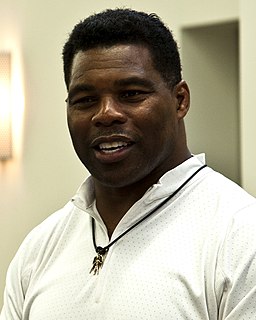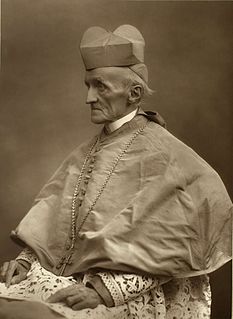A Quote by Jay Kesler
Things are to be used and God is to be loved. We get into trouble when we begin to use God and love things.
Related Quotes
Detachment from things does not mean setting up a contradiction between 'things' and 'God' as if God were another thing and as if creatures were His rivals. We do not detach ourselves from things in order to attach ourselves to God, but rather we become detached from ourselves in order to see and use all things in and for God.
Finding God in all things is not an 'empirical eureka.' When we desire to encounter God, we would like to verify him immediately by an empirical method. But you cannot meet God this way...A contemplative attitude is necessary: it is the feeling that you are moving along the good path of understanding and affection toward things and situations. Profound peace, spiritual consolation, love of God, and love of all things in God-this is the sign that you are on this right path.
If you yourself do not cut the lines that tie you to the dock, God will have to use a storm to sever them and to send you out to sea.
You have to get out past the harbor into the great dephts of God, and begin to know things for yourself....beg in to have spiritual discernment.
Beware of paying attention or going back to what you once were, when God wants you to be something that you have never been.
Of God's love we can say two things: it is poured out universally for everyone from the Pope to the loneliest wino on the planet; and secondly, God's love doesn't seek value, it creates value. It is not because we have value that we are loved, but because we are loved that we have value. Our value is a gift, not an achievement.
If you've ever known the love of God, you know it's nothing but reckless and it's nothing but raging. Sometimes it hurts to be loved, and if it doesn't hurt it's probably not love, may be infatuation. I think a lot of American people are infatuated with God, but we don't really love Him, and they don't really let Him love them. Being loved by God is one of the most painful things in the world, it's also the only thing that can bring us salvation and it's like everything else that is really wonderful, there's a little bit of pain in it, little bit of hurt.
You were loved because God loves, period. God loved you, and everyone, not because you believed in certain things, but because you were a mess, and lonely, and His or Her child. God loved you no matter how crazy you felt on the inside, no matter what a fake you were; always, even in your current condition, even before coffee. God loves you crazily, like I love you...like a slightly overweight auntie, who sees only your marvelousness and need.
What is sin? It is the glory of God not honored. The holiness of God not reverenced. The greatness of God not admired. The power of God not praised. The truth of God not sought. The wisdom of God not esteemed. The beauty of God not treasured. The goodness of God not savored. The faithfulness of God not trusted. The commandments of God not obeyed. The justice of God not respected. The wrath of God not feared. The grace of God not cherished. The presence of God not prized. The person of God not loved. That is sin.
Praise consists in the love of God, in wonder at the goodness of God, in recognition of the gifts of God, in seeing God in all things He gives us, ay, and even in the things that He refuses to us; so as to see our whole life in the light of God; and seeing this, to bless Him, adore Him, and glorify Him.
I am learning that mature faith, which encompasses both simple faith and fidelity, works the opposite of paranoia. It reassembles all the events of life around trust in a loving God. When good things happen, I accept them as gifts from God, worthy of thanksgiving. When bad things happen, I do not take them as necessarily sent by God -- I see evidence in the Bible to the contrary -- and I find in them no reason to divorce God. Rather, I trust that God can use even those bad things for my benefit.
The belief in God is not therefore based on the perception of design in nature. Belief in design in nature is based upon the belief in God. Things are as they are whether there is a God or not. Logically, to believe in design one must start with God. He, or it, is not a conclusion but a datum. You may begin by assuming a creator, and then say he did this or that; but you cannot logically say that because certain things exist, therefore there is a God who made them. God is an assumption, not a conclusion. And it is an assumption that explains nothing.


































